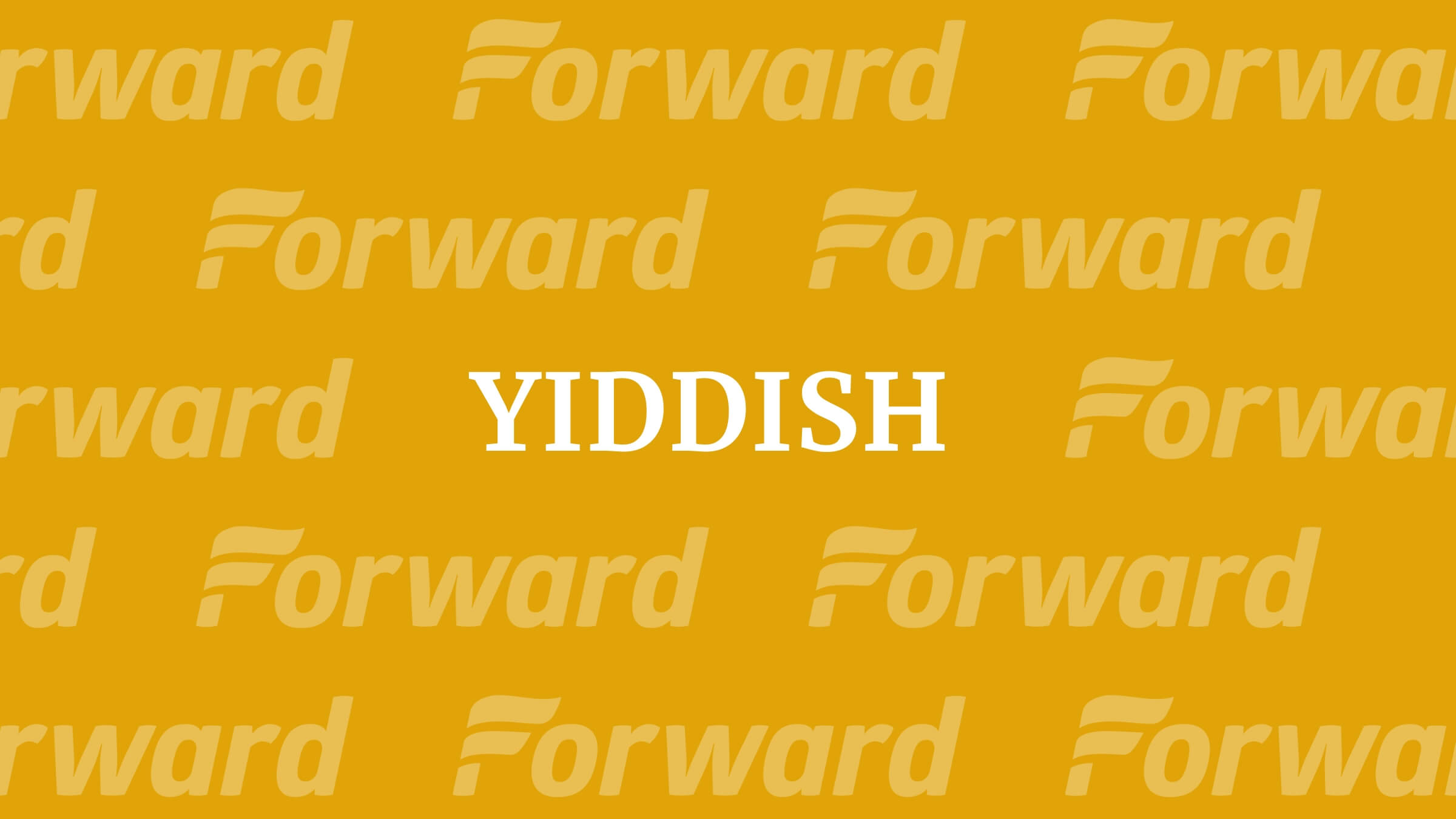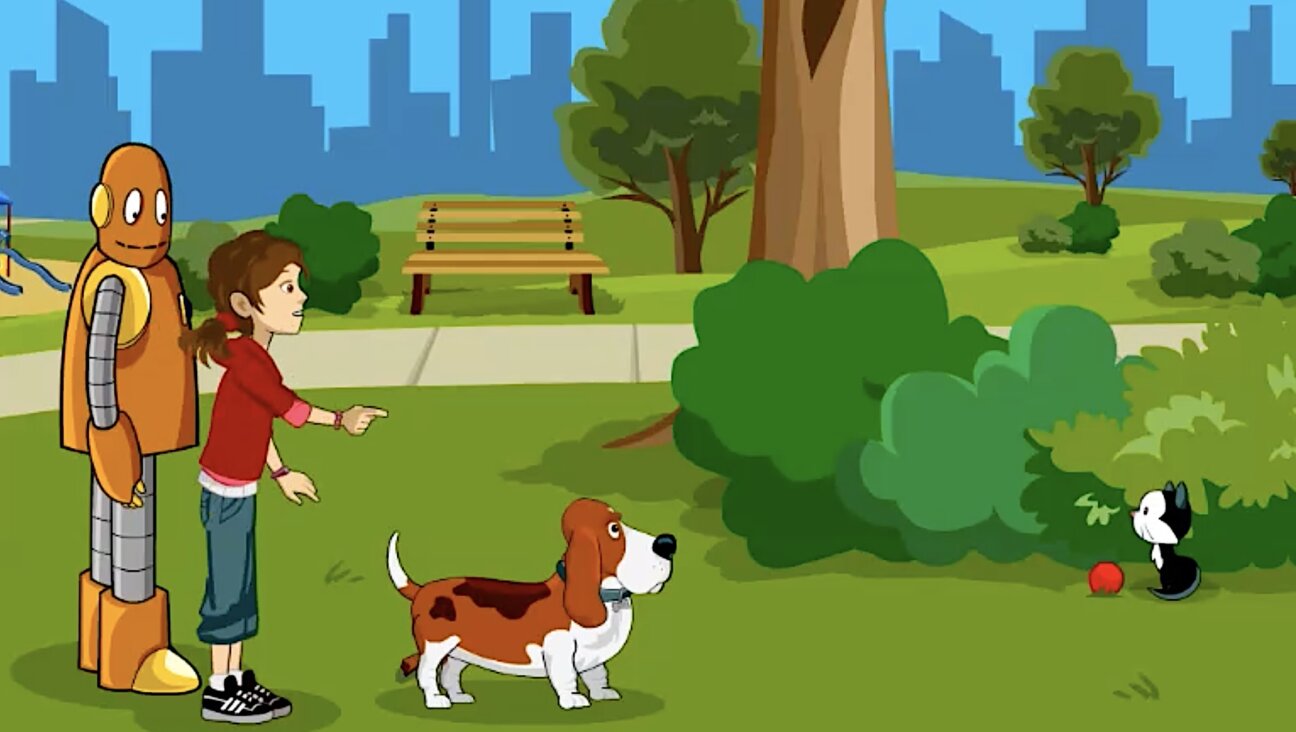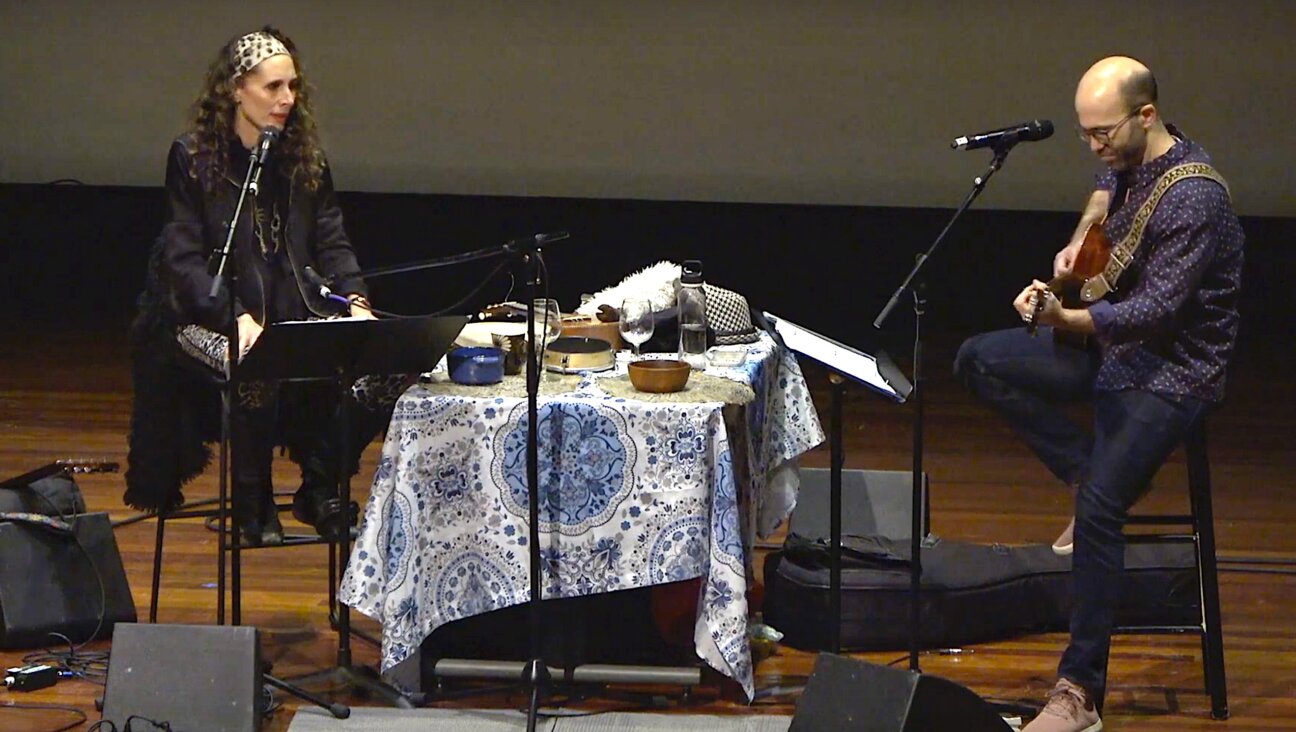Yiddish song decrying killing of George Floyd among winners of Bubbe Prizes

Graphic by Angelie Zaslavsky
Read this article in Yiddish.
On Saturday, October 24th, the winners of the Bubbe Prizes, an international Jewish music competition, were announced during an award ceremony broadcast on YouTube.
The contest was organized as part of the international klezmer festival, “Kleztival”, held from October 17th through October 25th, in São Paulo, Brazil. 136 singers and musicians from 22 countries submitted songs written during the Jewish year 5780 (September 2019 through August 2020). The jury selected 10 finalists in three categories: “Best Jewish Music Video”, “Best New Yiddish Song” and “Best New Klezmer Tune”. The ten entries in each category that were chosen for the final round were streamed on YouTube a week before the award ceremony to give online viewers a chance to vote for their favorites.
Winning singers, composers and musicians received cash prizes ranging from $200 to $1,000.
In the category, “Best Original Yiddish Song”, the jury – composed of Lorin Sklamberg, lead singer of the Grammy-award winning Klezmatics and sound archivist at the YIVO Institute in New York; Abraham Lichtenbaum, the director of the IWO Institute in Buenos Aires, and Ethel Raim, the folk singer and cofounder of the Center for Traditional Music and Dance – selected three winning entries out of 38 submissions.
The jury awarded first prize to the Moldovan duo of singer Efim Chorny and pianist Suzanna Gherghus for their song, “S’iz Dorem-Amerike” (It’s South America), while the winner among online voters was Brazilian singer Tânia Grinberg for her song, “Naye Velt” (New World). Second place was a tie between American singer Josh Waletzky’s “Der Talyen” (The Hangman), which decries the killing of George Floyd, and Dutch singer Shura Lipovsky’s “Di Levone Badekt Ir Shmeykhl” (The Moon Covers Her Smile). Waletzky is well known for his Yiddish songs about hot button political issues: his song decrying income inequality, “Nayn un Nayntsik” (“ninety nine” referring to the Occupy Wall Street slogan “We are the 99%”) has become a staple covered by other singers. While “Der Talyen” is the first Yiddish song about the killing of George Floyd, it harkens back to a long tradition of songs about police brutality.
Third place was awarded to New York-based cantor Sarah Myerson for “Mame, Mame, Zog Mir Dos” (Mother, Mother, Tell Me). The ten nominated works in the category, “Best Original Yiddish Song” can be heard here.
For the category of “Best New Klezmer Tune”, the jury awarded Nat Seelen top prize for his “Suite 1973”. Seelen plays clarinet in the Boston-based klezmer band, Ezekiel’s Wheel. Online voters chose Ukrainian composer Mitya Gerasimov’s “Rusanivski Kosatchok” as the people’s choice award for best klezmer song. Nicolaas Cottenie of Germany won second prize for his composition, “Khosidl fur das Neue Lebn” (A Hasidic Dance for the New Life) and the Ukrainian musician Gennadyi Fomin took home the third place prize for the song, “Golden Fish.”
All ten nominated klezmer compositions can be heard here.
The top prize for best music video was awarded to the Berlin-based American punk klezmer performer Daniel Kahn and Israeli soprano Sveta Kundish for “Di Mentshn-Freser”. The song, whose title translates to “Cannibals”, was written by Solomon Small in 1916 and describes humanity’s suffering from plagues throughout history. The socially-distanced music video weaves together archival footage of the flu pandemic of 1918 with the singers wandering the German countryside at the height of the coronavirus lockdown.
Online voters also honored Israeli Yiddish theater star Yoni Eilat’s whimsical take on Joseph Papiernikov’s “Zol Zayn” (Could Be) with the people’s choice award.
Swiss actress, singer and rapper Lea Kalisch was awarded the second-place prize for her Yiddish-English feminist rap video, “Eshet Chayil of Hip Hop”.
Another rapper, South African Sam Turpin, received third place for his video, “Sahara Flow”.
All of the nominated music videos can be watched here.
























